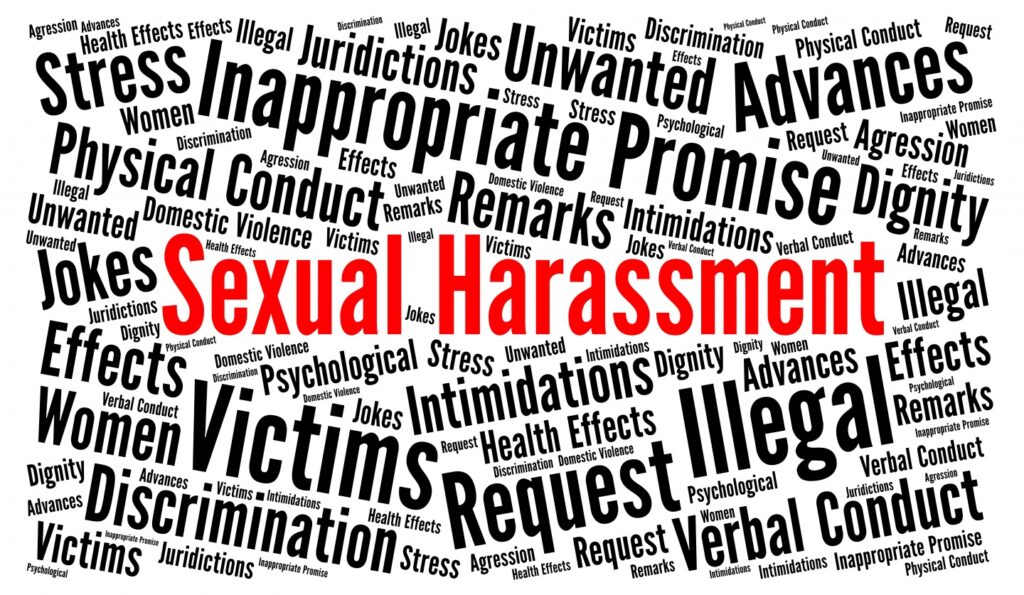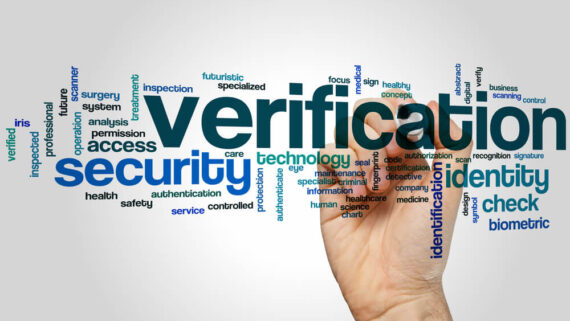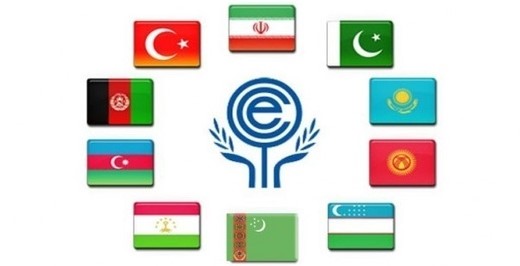Sexual harassment is unwelcome, sexually oriented behavior causing discomfort and distress, manifesting through verbal, non-verbal, or physical actions. Forms include explicit comments, unwanted touching, and online advances. Contexts range from workplaces and public spaces to educational institutions. This article is a comprehensive guide that aims to raise awareness, empower victims, and foster understanding surrounding this critical issue, ultimately contributing to a society free from the shadows of harassment. In Turkey, legal aspects encompass stringent laws against harassment, with penalties and fines for perpetrators. Bicak Law Firm offers victims personalized consultations, legal guidance, and representation, emphasizing confidentiality and holistic support to help survivors navigate the legal complexities of their cases.
Legal Dimensions of Sexual Harassment in Turkey
Sexual harassment is a pervasive and deeply concerning form of misconduct that occurs across various settings in Turkey, including workplaces, educational institutions, public spaces, and social environments. It involves unwanted and inappropriate behavior of a sexual nature that creates an uncomfortable, hostile, or offensive environment for the victim. This behavior can be verbal, non-verbal, or physical in nature.
At its core, sexual harassment is a violation of an individual’s dignity and rights. It is not limited to a specific gender, age, or relationship; anyone can experience or perpetrate sexual harassment. Understanding the different forms and contexts of sexual harassment is crucial in order to combat its prevalence and create safer environments for everyone.
Forms of Sexual Harassment
- Verbal Harassment: This involves unwelcome comments, jokes, innuendos, or remarks of a sexual nature. Such behavior can range from offensive language to explicit discussions that make the victim uncomfortable and embarrassed. Verbal examples of sexual harassment may include: making sexual comments about a person’s body, making sexual comments or innuendos, asking about sexual fantasies, preferences or history, asking personal questions about someone’s social or sex life, making sexual comments about a person’s clothing, anatomy, or looks, repeatedly trying to date a person who is not interested, telling lies or spreading rumours about a person’s sex life or sexual preferences.
- Non-Verbal Harassment: Non-verbal actions, such as leering, whistling, making suggestive gestures, or displaying explicit images, fall under this category. These actions can be just as damaging as verbal harassment, as they contribute to a hostile environment. Examples of non-verbal harassment include: looking a person up and down (‘elevator eyes’), following or stalking someone, using sexually suggestive visuals, making sexual gestures with the hands or through body movements, using facial expressions such as winking, throwing kisses, or licking lips.
- Physical Harassment: Unwanted physical contact, including touching, groping, or brushing against someone without their consent, constitutes physical harassment. Instances of physical harassment include: giving someone a massage around the neck or shoulders, touching another person’s clothing, hair, or body, hugging, kissing, patting, touching or rubbing oneself sexually against another person.
These actions infringe upon personal boundaries and can cause significant emotional distress.
Contexts of Sexual Harassment
- Workplace: In professional settings, sexual harassment can manifest as unwanted advances, inappropriate comments, or explicit requests that interfere with an individual’s ability to work comfortably and productively. It may lead to a hostile work environment, impacting an individual’s career and overall well-being. For example, in 2017, multiple women came forward with allegations of sexual harassment and assault against prominent Hollywood producer Harvey Weinstein. These allegations sparked the #MeToo movement, encouraging women across industries to share their stories and shed light on the prevalence of workplace harassment. Anather example, in 2018, allegations emerged against Larry Scott, the former CEO of the Women’s Tennis Association (WTA), for creating a hostile work environment and undermining women players’ concerns, indicating how even sports environments are not immune to harassment.
- Educational Institutions: Students and staff members alike can experience sexual harassment in educational environments. This may include instances of peer-to-peer harassment, as well as misconduct perpetrated by teachers, professors, or other authority figures. For instance, in 2018, numerous gymnasts, including high-profile athletes like Simone Biles, revealed that they were sexually abused by former USA Gymnastics team doctor Larry Nassar. The abuse occurred under the guise of medical treatment, highlighting how power dynamics within educational settings can enable such misconduct.
- Public Spaces: Any location where people gather, such as public transportation, social gatherings, street harassment or recreational areas, can become a site of sexual harassment. Catcalling, unwanted advances, and invasion of personal space are common examples. For example, in 2014, a video titled “10 Hours of Walking in NYC as a Woman” went viral, showcasing the daily experience of a woman being subjected to unsolicited comments, stares, and advances while walking in New York City.
- Online Platforms: With the rise of digital communication, sexual harassment has extended to online spaces as well. Unsolicited explicit messages, cyberbullying, and the sharing of intimate images without consent are forms of online sexual harassment. For example, actress Leslie Jones faced severe online harassment in 2016, including racist and sexist comments, after her role in the Ghostbusters reboot. The incident shed light on the rampant online abuse faced by women, especially those in the public eye. Online Revenge Porn is also widespread incident. Revenge porn involves sharing intimate or explicit images of someone without their consent. In 2014, actress Jennifer Lawrence and several other celebrities fell victim to a hacking incident where their private photos were leaked and circulated online.
These examples illustrate the wide range of contexts in which sexual harassment can occur, emphasizing the importance of raising awareness, implementing policies, and creating safe spaces to prevent such behavior and support survivors.
Impact and Importance of Addressing Sexual Harassment
The consequences of sexual harassment extend beyond the immediate discomfort experienced by victims. It can lead to emotional trauma, anxiety, depression, decreased self-esteem, and a reluctance to engage in activities that were once enjoyed. Addressing sexual harassment is not only about seeking justice for the victims but also about fostering environments where all individuals can feel safe, respected, and empowered.
By recognizing the forms and contexts of sexual harassment, promoting awareness, and implementing comprehensive policies and preventive measures, societies can take significant steps toward eradicating this harmful behavior. Everyone has a role to play in creating an inclusive and supportive environment that promotes dignity, respect, and equality for all.
Legal Aspects of Sexual Harassment Incidents in Turkey
In recent years, increased awareness and advocacy have led to significant strides in addressing sexual harassment incidents from a legal perspective. Governments and organizations around the world have recognized the urgent need to provide legal frameworks that protect individuals from the physical, emotional, and psychological harm caused by sexual harassment. Here are some key legal aspects to consider when dealing with sexual harassment incidents in Turkey:
- Legal Definitions: Turkish legal system define sexual harassment as unwanted, unwelcome behavior of a sexual nature that creates a hostile or intimidating environment. These definitions encompass a wide range of behaviors, from verbal comments and advances to physical contact and online interactions.
- Employment Laws: Turkey have specific laws and regulations that address sexual harassment in the workplace. These laws often outline the responsibilities of employers to prevent and address harassment, provide avenues for reporting incidents, and prohibit retaliation against victims who come forward.
- Civil Lawsuits: Individuals who experience sexual harassment have the right to file civil lawsuits against their harassers and, in some cases, the organizations that employed them. These lawsuits can seek monetary damages for the harm suffered, including emotional distress, medical expenses, and lost wages.
- Criminal Charges: In cases of severe sexual harassment or assault, criminal charges may be pursued by law enforcement authorities. These charges can lead to penalties such as fines, probation, or imprisonment for the perpetrators.
- Statutes of Limitations: Turkish legal system typically have time limits within which a victim must file a complaint or lawsuit. These time limits can influence a victim’s ability to seek legal recourse.
- Whistleblower Protections: Turkish law does not include provisions that protect individuals who report sexual harassment from retaliation by their employers or colleagues. These protections discourage victims to come forward without fear of negative consequences.
- Legal Documentation: Maintaining thorough documentation of incidents, including dates, times, locations, and any evidence, can be crucial when pursuing legal action. This documentation can support a victim’s case and strengthen their credibility.
- Legal Support: Victims of sexual harassment often benefit from legal support and guidance. Legal professionals can help victims understand their rights, navigate legal processes, and determine the best course of action based on their specific situation.
- International and Local Variations: It’s important to note that the legal framework for addressing sexual harassment varies across jurisdictions. International treaties and conventions, such as the Convention on the Elimination of All Forms of Discrimination Against Women (CEDAW), provide a foundation for addressing gender-based violence and harassment on a global scale.
The legal aspects of sexual harassment incidents are essential in providing victims with avenues for justice, accountability for perpetrators, and the deterrence of future incidents. As societies continue to evolve, it is crucial to advocate for robust legal frameworks that prioritize the safety and well-being of all individuals, while fostering environments free from harassment and discrimination.
Legal Assistance Services to Victims of Sexual Harassment
At Bicak, we are deeply committed to providing comprehensive legal assistance and support to victims of sexual harassment. We understand the profound impact that such incidents can have on an individual’s well-being, and we are dedicated to helping survivors navigate the legal complexities and challenges that may arise in their pursuit of justice. Our range of tailored services is designed to empower victims and guide them towards resolution, healing, and the restoration of their rights.
- Consultations and Case Assessment: We offer confidential consultations where victims can share their experiences and concerns. Our legal experts will carefully assess the details of each case, providing victims with a clear understanding of their legal options, potential outcomes, and the steps involved in pursuing legal action.
- Legal Guidance and Strategy: Our experienced attorneys work closely with victims to develop personalized legal strategies. We take into account each victim’s unique circumstances and objectives, providing clear guidance on the best course of action, whether it involves filing a civil lawsuit, pursuing criminal charges, or addressing workplace harassment.
- Documentation Assistance: Proper documentation is vital in building a strong case. Our team assists victims in compiling relevant evidence, including correspondence, records of incidents, witness statements, and medical reports. This documentation enhances the credibility of a victim’s claims and strengthens their legal position.
- Representation in Legal Proceedings: Whether it’s negotiating with employers, engaging in mediation, or representing victims in court, our skilled legal team offers dedicated representation throughout various legal proceedings. We prioritize our clients’ interests, advocating for their rights and pursuing the most favorable outcomes on their behalf.
- Protection from Retaliation: We understand that victims may fear retaliation for speaking out. Our firm provides guidance on whistleblower protections, ensuring that victims are aware of their rights and the legal safeguards in place to shield them from adverse consequences.
- Emotional Support and Empowerment: Our compassionate team recognizes the emotional toll that sexual harassment can take. We offer a safe and supportive environment where victims can openly discuss their feelings and concerns. Empowering victims with knowledge and resources is a central part of our approach.
- Collaboration and Resources: We collaborate with a network of professionals, including therapists, counselors, and support groups, to offer a holistic approach to recovery. Our aim is to provide victims with not only legal guidance but also resources that foster healing and resilience.
- Confidentiality and Privacy: Confidentiality is paramount in our practice. Victims can trust that their sensitive information will be treated with the utmost confidentiality, ensuring their privacy throughout the legal process.
At Bicak, we believe that every survivor of sexual harassment deserves to have their voice heard, their rights protected, and their journey towards justice and healing supported. Our legal assistance services are designed to empower victims, address their concerns, and guide them towards a brighter future free from the shadows of harassment.
If you or someone you know has experienced sexual harassment, please don’t hesitate to reach out to us. We are here to listen, support, and advocate for you every step of the way.
 English
English Türkçe
Türkçe Français
Français Deutsch
Deutsch









Comments
No comments yet.